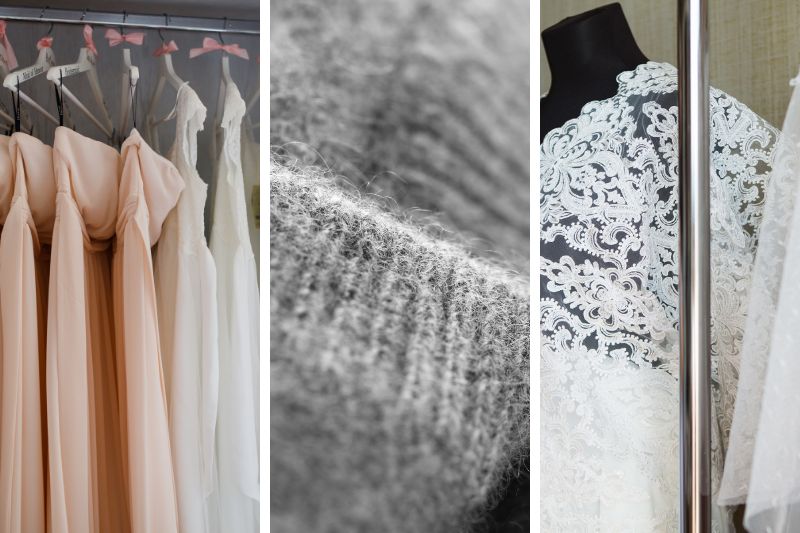There’s no doubt about it, silk is as light as a feather and is so comfortable to wear. A wool jumper is the best companion on a winter evening. And chiffon’s sheer look adds a touch of class to outfits on sunny days!
But are these the only items that are considered ‘delicate clothes’, or are there more? Read on to find out.
What Clothes Are Considered ‘Delicate’?
It can be hard to pin down what ‘delicate clothes’ are. Some will say that the term ‘delicate clothes’ refers to underwear (knickers and bras), and others will say it refers to all types of delicate materials.
In reality, delicate clothes are items that are made up of fragile fabrics like silk and require specialised care and attention.
Delicate clothes are prone to getting damaged by general wear and tear-related problems, as well as, issues related to the garments being washed incorrectly. Such troubles aren’t as prevalent in harder-wearing materials!
If delicate clothes are mistreated or are washed in the wrong type of environment, they will shrink, snag, go bobbly, go out of shape and may even become discoloured.
This isn’t exactly ideal as these pieces can be expensive to purchase in the first place, and un-shrinking or repairing said items isn’t always possible.
As a general guide, delicate clothes don’t like being washed in an environment where there is excessive heat and agitation (there’ll be symbols on the item’s tag that state this), hence why a lot of delicate items need to be hand-washed instead of machine-washed!
By hand washing these items, you have better control over the water temperature, and you can ensure the fragile garments are washed very gently so they don’t end up ruined!
If you can clean delicate clothes in a washing machine (the care label on the item will advise you on this), make sure you pop a specialised detergent into the machine and select a specialised cleaning program (typically known as the ‘delicate’ or ‘gentle’ cycle)!
By selecting an appropriate program, the fragile clothes will be washed at a cooler temperature and with minimal agitation and spin. In turn, this should limit potential damage (tears) and shrinkage.
In addition, when cleaning delicate clothes in a washer, it’s advised to pop the items inside mesh laundry bags and to add the bags to the washer’s drum, something that you wouldn’t necessarily have to do with harder-wearing laundry.
The bags keep the pieces in one place so they don’t get thrown around and knotted inside the machine during the cycle.
Furthermore, delicate clothes don’t like to be cleaned using ‘normal’ detergent and bleach-based goods as this puts a strain on the material’s fibres and can wear them down, break through the fabric completely or discolour it.
So, always use a delicate detergent to clean these items. Again, there will be a symbol on the delicate item’s tag that advises you more about this.
Materials That Are Considered Delicates
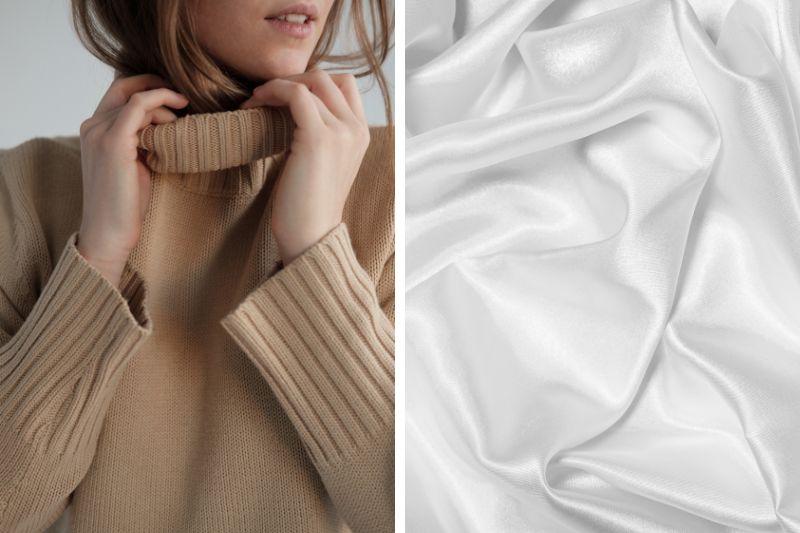
Materials that come under the ‘delicate’ title include:
- Silk
- Wool
- Sheer fabrics
- Satin
- Clothes with embellishments, sequins and beads
- Chiffon
- Lace
- Clothes with embroidery
- Linen
- Very, very thin cotton is also sometimes classed as ‘delicate’
Examples of Clothes That Would Be Considered Delicate
Here are some clothes and other items that would normally be considered delicate:
- Lingerie that is made up of or contains silk or lace.
- Knitted jumpers, including those made from wool and cashmere.
- Hand-knitted items like jumpers, shawls and scarves.
- Scarves, gloves and hats that are made from silk and wool, like Alpaca wool.
- A wedding dress or prom dress would be delicate as they’ve usually got embellishments, lace, tulle and sheer materials on them.
- Fragile bedding, perhaps an heirloom or vintage piece that has been hand-crafted with embellishments.
- Blankets, like those made from Alpaca wool and wool.
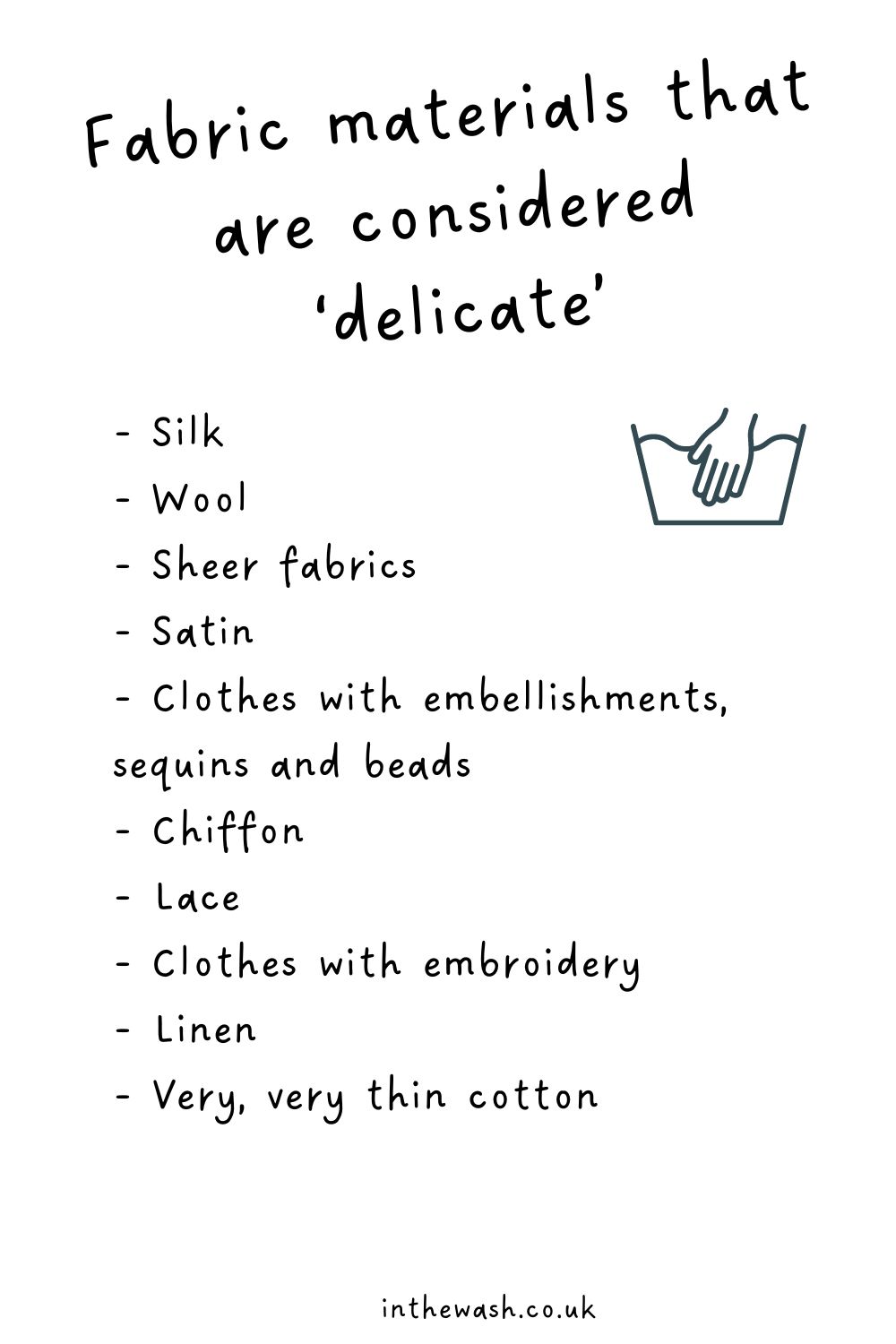
Taking Care of Delicate Clothes
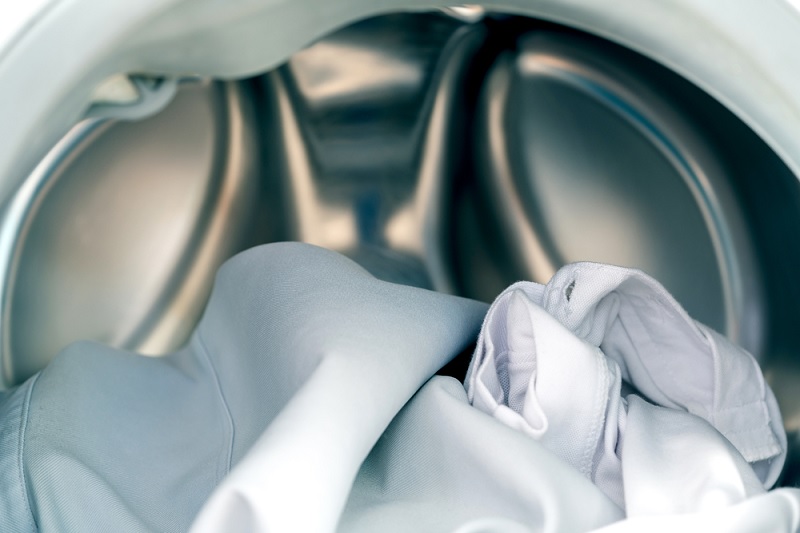
Here are a few tips to consider when caring for delicate clothes:
1. Read the label
Always read the care label on your delicate item and adhere to the instructions you’re given. Not sticking to the advice will result in you washing the piece in the wrong way, and you’ll likely damage the garment in the process.
2. Don’t machine wash ‘hand wash only’ clothes
If you see ‘hand wash only’ on the label of a delicate garment – stick to this advice.
3. Use a specialised detergent
Wash your delicate clothes with a specialised detergent. The chemicals found in regular detergents will be too strong for the delicate fibres to handle and could strain them. Don’t risk ruining your clothes. Just buy the right cleaner.
Detergents you could look into include (all can be used for hand washing items):
- Woolite Liquid Laundry Detergent for Wool and Silk
- Ecover Delicate Laundry Liquid
- Stergene Gentle Care
4. Don’t overwash
Don’t overwash delicate clothes. Refresh them instead! In most cases, you won’t need to clean your fragile item after every wear, you can get by with airing the garment and treating any stains (jumpers and scarves don’t need to be washed after a single use, for example).
In fact, not washing delicates too much may also protect their lifespan.
Of course, if your delicate items are underwear-based, then you will need to clean these pieces more frequently (knickers would need to be washed after a single use, for example)!
5. Hand-wash if possible
Hand-wash your delicates whenever possible. This is a much kinder way of cleaning your fragile clothes!
6. Store delicate clothes correctly
Store delicate clothes and items when they’re clean and in airtight storage bags to stop moth larvae from damaging them.
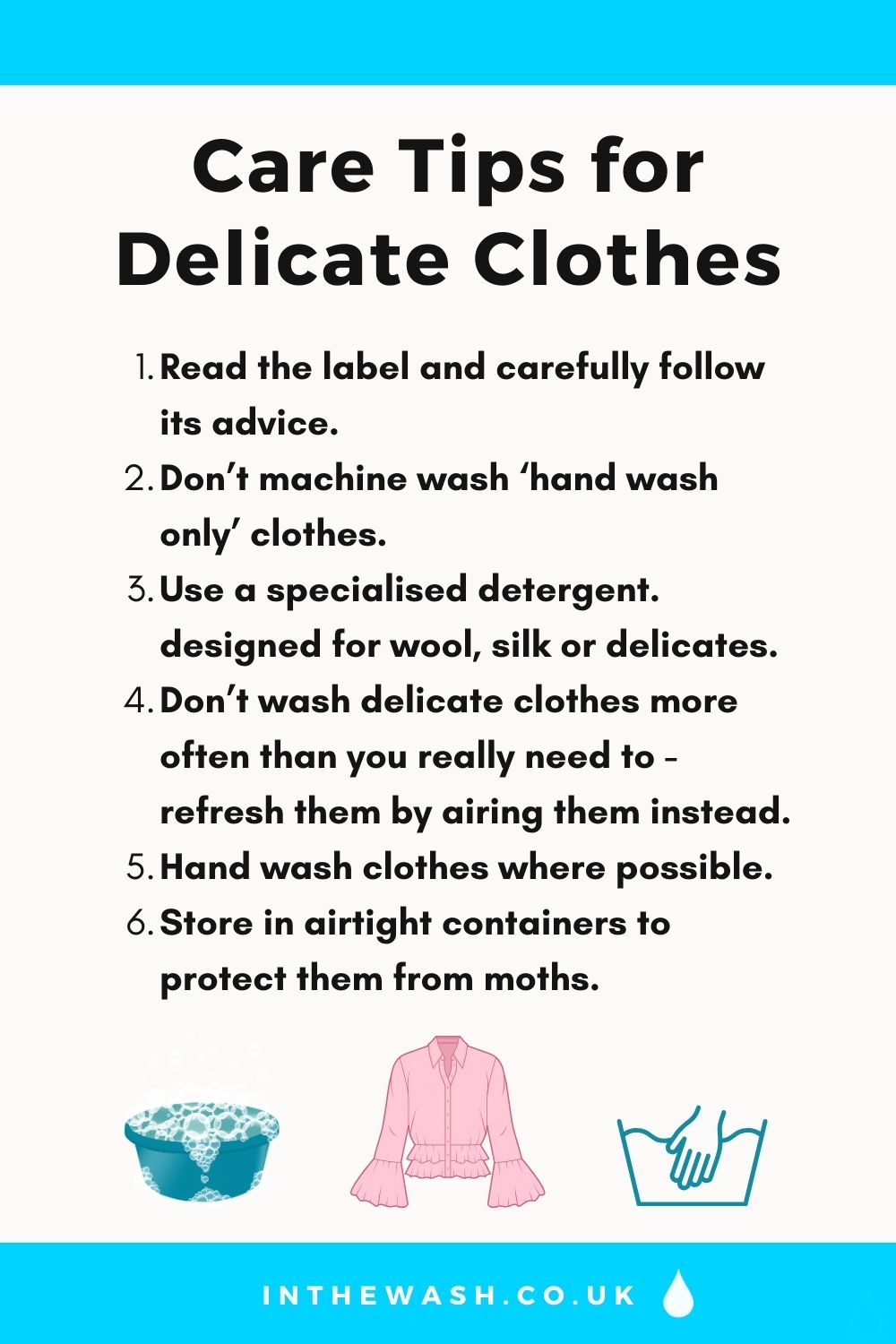

Bethan has a passion for exploring, reading, cooking and gardening! When she’s not creating culinary delights for her family, she’s concocting potions to keep her house clean!
